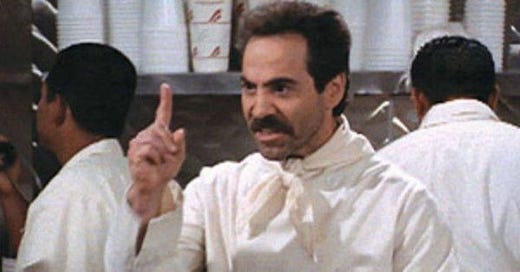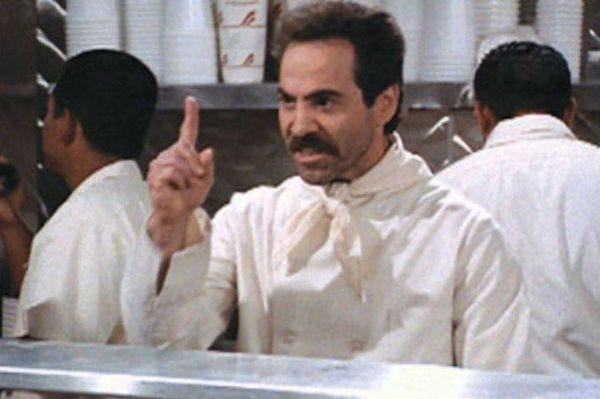
Giant Insurer United Healthcare Generously Delays Death Panel Plan Until Pandemic Over
It is the kindest, bravest, warmest, most wonderful insurance company we have ever known in our life.
You might think having health insurance is pretty cool, since if you have a medical emergency, you'll be "covered" and won't be bankrupted by a visit to the hospital. But United Healthcare, the USA's biggest health insurer, is preparing to roll out an exciting innovation in health coverage , or non-coverage: It's going to check all its policy-holders' emergency room visits, and if it decides retroactively that the visit wasn't due to a real emergency, it'll stick the patient with some or all of the bill.
That's sure to keep insurance premiums low by making people think twice before going in for a pricey visit to the ER, or as the pros call it, the "ED" (for emergency department, not bonerbrokeness). And if that means some people die of heart attacks because maybe those chest pains were just heartburn, well, that'll save even more money because United won't have to deal with the costs of treating the heart attack. Those are expensive!
As Ars Technica reports, the proposal didn't sit well with doctors and hospitals, who say it
sets a dangerous precedent of requiring patients to assess their own medical problems before seeking emergency care, which could end up delaying or preventing critical and even lifesaving treatment.
Happily, United Healthcare says that instead of its planned start date of July 1, the new policy won't go into effect until the pandemic is over and the medical state of emergency has officially ended. Thanks, COVID-19! Now UHC customers can have a health emergency field day, at least a little while longer. Maybe not long enough to pass single-payer healthcare, though.
In an email to Ars Technica, a company flack explained that UHC would use the pause to "continue to educate consumers, customers, and providers on the new policy and help ensure that people visit an appropriate site of service for non-emergency care needs." That last bit presumably means telling people to consider less-expensive visits to a doctor's office or urgent care clinic (if those are open). Or perhaps a frantic search on WebMD while wondering whether they're short of breath because they're in danger, or just because they're having an anxiety attack at the thought of having to pay a whopping ER bill if UHC decides they should have stayed home.
When the policy does eventually go into effect, UHC's forensic bean-counters will
carefully review what health problems led to the visit, the "intensity of diagnostic services performed" at the emergency department (ED), and some context for the visit, like the member's underlying health conditions and outside circumstances. If UHC decides the medical situation didn't constitute an emergency, it will provide "no coverage or limited coverage," depending on the member's specific insurance plan.
This, as a bunch of doctors have protested, is stupid, because
assessing the necessity of emergency care before it's actually given is nearly impossible. Many serious conditions have symptoms that overlap with nonserious conditions. For instance, chest pain may simply be a symptom of acid reflux or a panic attack, but it could also be a sign of a life-threatening heart attack. A bad headache could just be a bad headache, or it could signal a dangerous brain bleed.
That's not just speculation, either. When America's second-largest health insurer, Anthem (never choose insurance named for an Ayn Rand novel!), put a similar second-guessing policy in place, researchers did an analysis of "probability-sampled" ED visits which found that, using Anthem's criteria, just under 16 percent of those visits would likely not meet Anthem's definition of an actual emergency. But instead of getting excited about the potential for big savings, the researchers found that those visits "shared the same presenting symptoms as 87.9% of ED visits, of which 65.1% received emergency-level services."
In an editorial accompanying the research , one of the authors, chief of emergency medicine at UC San Francisco Dr. Maria Raven, said trying to retroactively decide whether an ER visit was "necessary" is bad doctoring:
[My] colleagues and I examined whether a patient's symptoms at presentation to the ED could be labeled reliably as a nonemergency based on the discharge diagnosis—the diagnosis that Anthem is currently using to determine medical necessity. We found it was impossible.
The actual determination of whether a patient truly needed ER care could only be made with — surprise! — a visit to the ER, where the patient can be poked and prodded and asked about their medical history, Raven said. And that's just not something that should be left up to somebody trying to balance out whether they'd rasher risk dying or facing medical bankruptcy:
That the same presenting symptoms that resulted in some patients going to the intensive care unit and others being denied coverage because the visit was considered unnecessary makes clear the impossibility of patients judging medical necessity.
Prior to its decision to delay the new policy, UHC said in a statement that it simply had to do something about people seeking emergency care when they didn't "need" to, because "Unnecessary use of the emergency room costs nearly $32 billion annually, driving up healthcare costs for everyone."
Did UHC's statement address the question of whether people should have to decide whether they're really experiencing an emergency? Not as far as we can tell — but the statement did say people shouldn't go to the ER for a case of pink eye.
That didn't stop groups like the American Hospital Association and the American College of Emergency Physicians from protesting the decision. The ER docs noted that the Centers for Disease Control and Prevention estimates that only three percent of ER visits are actually "nonurgent," and stressed that
In many instances, even physicians do not know if a patient's symptoms require emergency treatment without undergoing medical examination and tests. Our main concern is that dangerous policies such as this will leave millions fearful of seeking medical care[.]
Well yes, that's the point. ER doc Seth Trueger tweeted that UHC's plan was "chilling" and that it would lead to people second-guessing whether to get care, calling it "a garbage policy that will throw babies out with the bathwater."
But come now, Dr. Trueger, don't you have to concede that there are plenty of babies out there already? Do we really need to keep every last one of them if that would mean insurance company executives might not get their bonuses for meeting annual earnings goals?
[ Ars Technica / Fierce Healthcare ]
Yr Wonkette is funded entirely by reader donations. If you can, please give $5 or $10 a month, to help us keep the baby in the bath where she belongs.
Do your Amazon shopping through this link, because reasons .












And disemploy all the poor rich insurance executives???? Have you no sense of decency?!?!
the health insurance industry better watch it. the doctors and hospitals are already super pissed at them. here's why. while doctors were risking their lives and working long shifts, and while hospitals were losing a shit ton of money because nobody was doing elective surgeries that they could put off, insurance companies were raking it in. nobody was going to a hospital or doctor unless it was life or death, so no money was going out, but nobody was cancelling their health insurance because they were terrified of COVID. the insurance companies didn't have to pay for people who ended up in the hospital with COVID because trump and his socialist pals picked up the tab for all that. in fact "the UnitedHealth Group’s net income during the second quarter grew from $3.4 billion in 2019 to $6.7 billion in 2020 and Anthem Inc’s net income increased from $1.1 billion to $2.3 billion." if the hospitals and doctors wanted to they could make life really difficult for the insurance companies, just give them a reason assholes